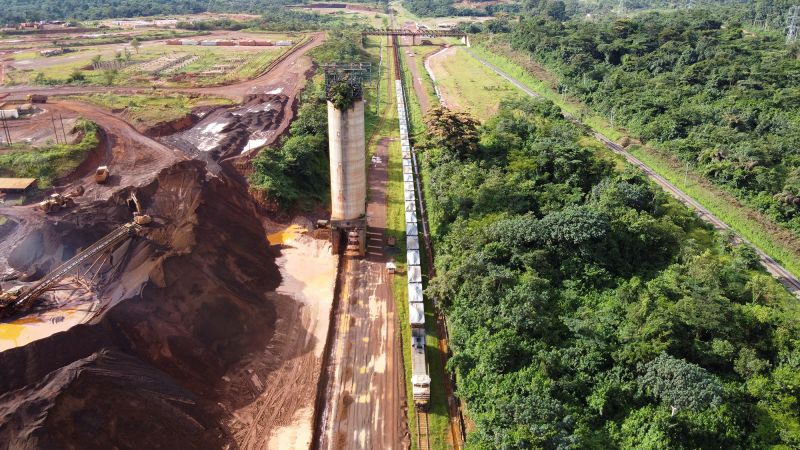Trump Hosts Select African Leaders to Counter Chinese Influence

The White House is hosting a summit this week that includes only five African nations, a move aimed at strengthening ties while countering Chinese influence on the continent. President Donald Trump has invited leaders from Liberia, Gabon, Guinea-Bissau, Mauritania, and Senegal to participate in discussions focused on enhancing diplomatic relations, advancing economic goals, and boosting security cooperation.
Notably absent from the summit are Africa’s largest economies, including South Africa, Nigeria, Egypt, and Ethiopia. These nations are significant players in the BRICS group, which includes emerging economies such as Brazil, India, and the adversarial nations of Russia and China. The exclusion of these major economies has raised eyebrows among analysts, many of whom view Trump’s selective invitation as a “high-stakes gamble” in US foreign policy.
The summit appears to be a strategic effort to engage with countries that are seen as “low-hanging fruit” for expanding US influence in Africa. As Christopher Afoke Isike, a professor of African politics and international relations at the University of Pretoria, observed, Trump’s approach reflects a desire for quick results to show his domestic political base. “On one hand, Trump is desperate for some deal to show to his base that he is getting results for America,” he said.
China currently holds the position of Africa’s largest trading partner, while Russia’s presence is growing as a major supplier of military hardware. The summit comes as the Trump administration seeks to recalibrate its strategy toward the continent, shifting from traditional aid models to a more transactional approach that prioritizes strategic investments.
Shifting Diplomatic Engagement
During his previous term, Trump hosted limited gatherings with African leaders, contrasting sharply with former Presidents Barack Obama and Joe Biden, who engaged more broadly with multiple heads of state. In a notable meeting in 2017, Trump referred to Africa as a region with “tremendous business potential.” His current focus on Africa’s mineral wealth aligns with ongoing efforts to challenge China’s dominance in critical mineral sectors.
Last month, a peace agreement brokered by Trump between Rwanda and the Democratic Republic of Congo drew attention for its potential implications on mineral rights. While the agreement does not explicitly grant the US any mineral rights, it establishes a framework for enhancing foreign trade and investment related to critical mineral supply chains.
The US Secretary of State, Marco Rubio, has signaled a shift away from the US Agency for International Development (USAID), previously a key partner in delivering humanitarian aid. “The countries that benefit the most from our generosity usually fail to reciprocate,” Rubio stated, emphasizing that future aid and investment must align with an “America First” foreign policy. This shift has led to the cancellation of numerous USAID programs and the implementation of reciprocal tariffs on several nations, including those in Africa.
Challenges and Opportunities
The five nations attending the summit, while smaller economies, possess rich mineral resources vital for various industries. Gabon, Guinea-Bissau, Mauritania, Senegal, and Liberia are strategically positioned as departure points for migrants seeking to reach the US. Discussions at the summit are expected to cover a range of issues, including migration trends and security concerns.
Mamadou Thior, a Dakar-based journalist and political analyst, emphasized that leaders from these countries must navigate their discussions carefully, given Trump’s business-oriented approach. “The USAID no longer exists. It’s up to them to talk to Trump to see what new cooperation they can put forward,” Thior remarked.
While the summit represents an opportunity for these nations to forge new partnerships, the context of US-China relations adds complexity to the discussions. China has been proactive in its engagement with Africa, boosting trade volumes and funding infrastructure projects. Recent comments from leaders in Guinea-Bissau and Senegal reflect their inclination towards China, which they view as a reliable partner.
As the White House plans a broader African leaders’ summit later this year, Trump’s current strategy indicates a significant pivot towards commerce-driven relations. This approach aims to foster self-reliance among African nations while simultaneously countering the influence of China and Russia. The outcome of this summit may set the tone for future US engagement in Africa, focusing on economic reform and trade relationships rather than traditional aid.
In summary, the upcoming summit presents both challenges and opportunities for the selected African nations as they navigate their relationships with the US amidst a shifting global landscape. The stakes are high, with implications for trade, security, and diplomatic relations in a region deeply influenced by external powers.






